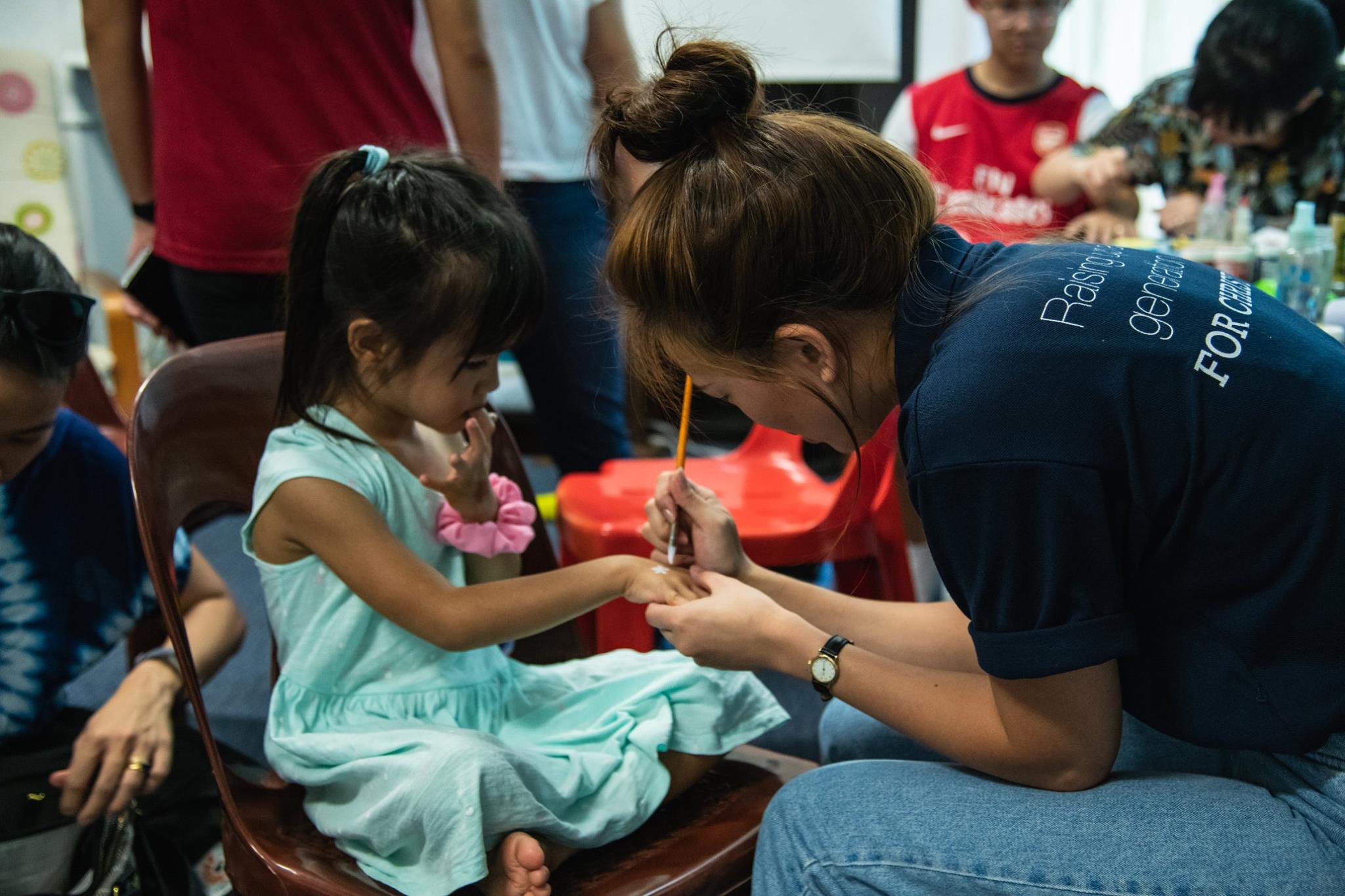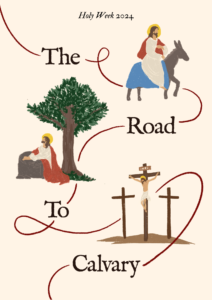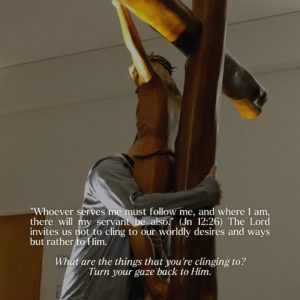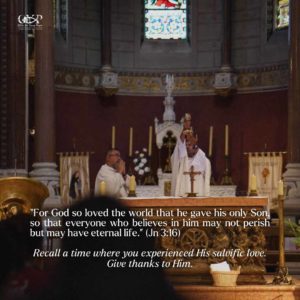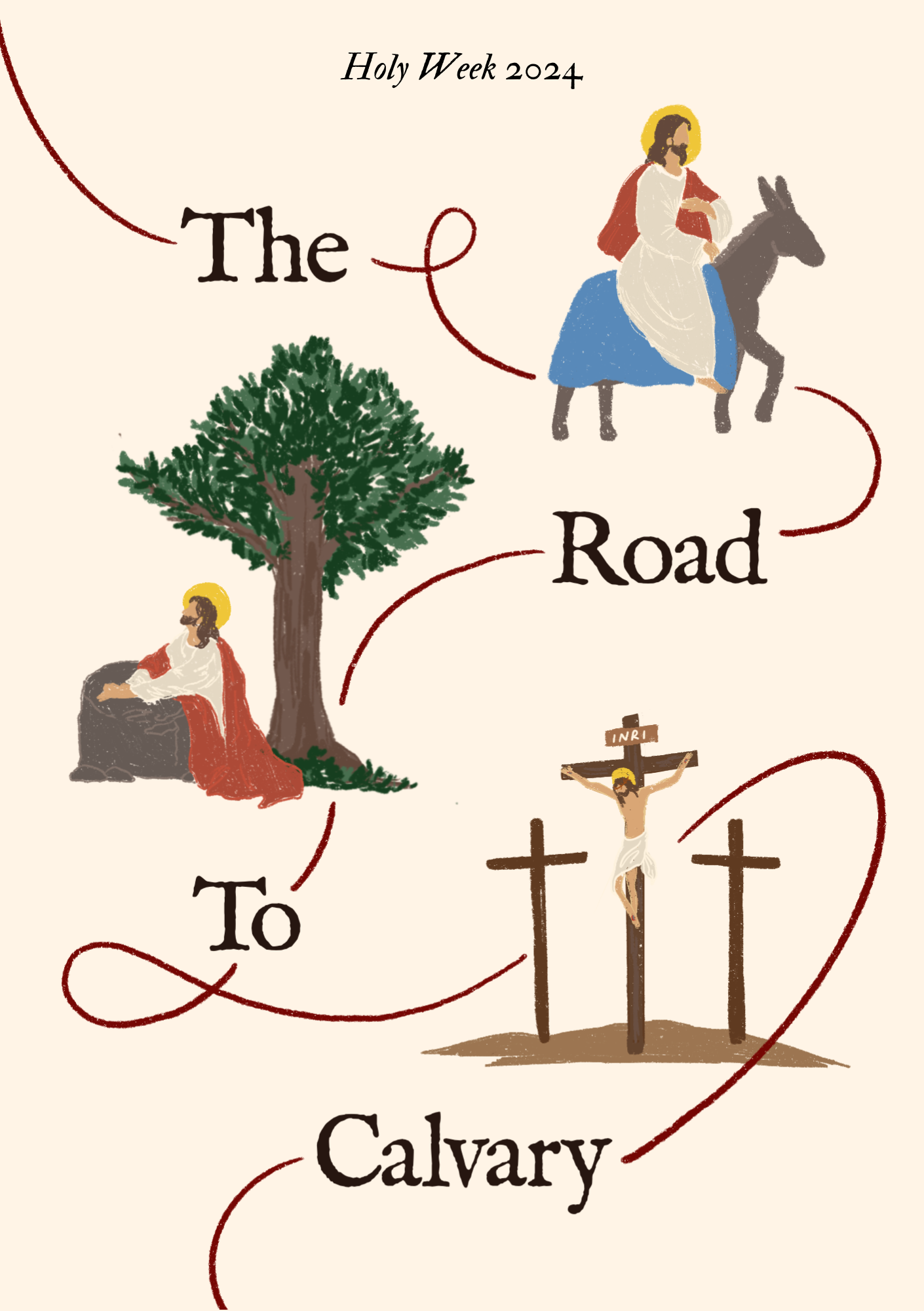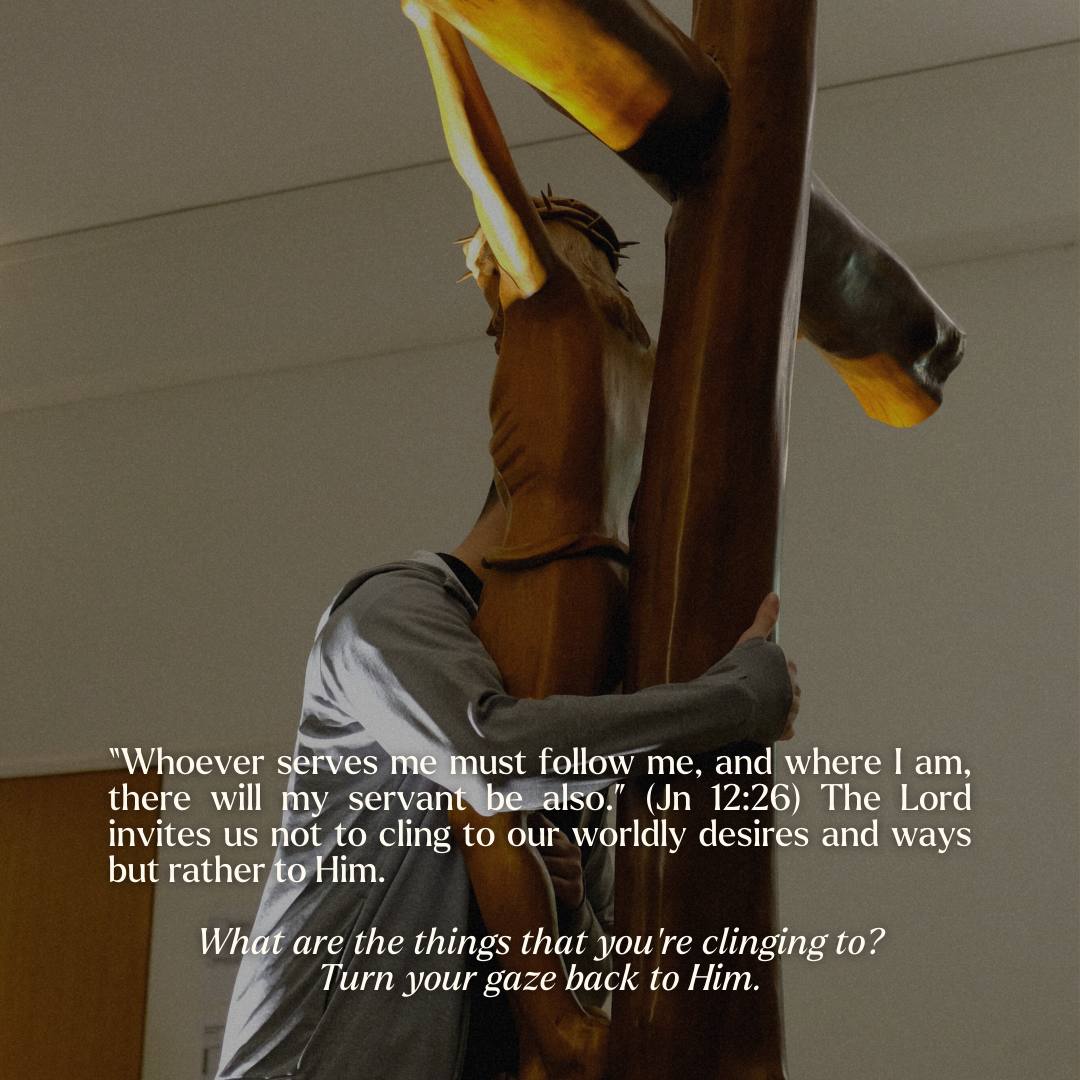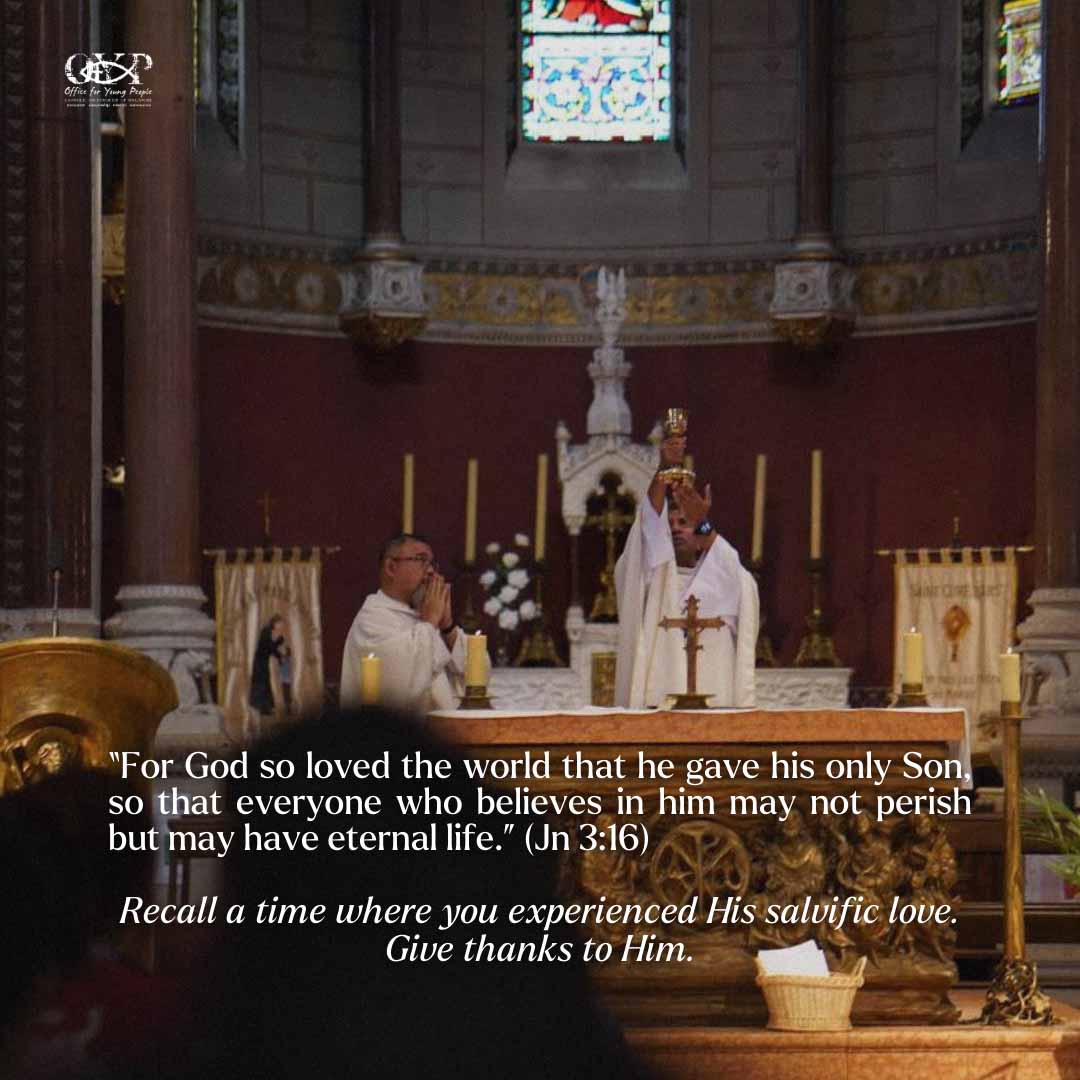by Genevieve Especkerman
But to Each One is Given the Manifestation of the Spirit for the Common Good (1 Corinthians 12:7)
“Strive for the greater gifts, and I will show you a still more excellent way”–1 Corinthians 12:31
What are these gifts?
To gain some context, we look at what St. Paul writes just before this. He talks about the various kinds of gifts that God gives to each of us: deeds of power, gifts of healing, forms of assistance, forms of leadership, various kinds of tongues (1 Corinthians 12:28). But then, importantly, it highlights that everybody is given different gifts: are all apostles? Are all prophets? Are all teachers? Do all work miracles? Do all possess gifts of healing? Do all speak in tongues? Do all interpret? (1 Corinthians 12:29-30)

For myself, it was a very good reminder upon reading this that not everybody has the same gifts. It also served as a reminder not to focus on the gifts that others had and on what I lacked. It was a call instead to look at the gifts that God has given to me, specifically, as an individual. Since God made me and knows me better than I know myself, I can then also trust Him that He knows what gifts to give to me. It was also an exercise of trust to believe that the gifts that have been given to me can be used in the best way if I continue to obey and follow the Spirit.
Looking at this in the context of community, we see how just like in a body, though different, when the different parts work together, there is optimal functioning. St. John Paul II says in the Redemptor Hominis: “…each member has ‘his own special gift,’ as St. Paul teaches. Although this ‘gift’ is a personal vocation and form of participation in the Church’s saving work, it also serves others, builds the Church and the fraternal communities in the various spheres of human life on earth.”
Each individual, with the different gifts that God has given specially to each of us, contributes to the community in a unique way; these gifts that we have been given are not meant for us to serve ourselves, but are given to us so that we can serve others. In the Christifideles Laici, which is a document written by St. John Paul II about the calling and mission of lay people in the church, it is written that “this special gift that each of us has defines the dignity and responsibility of each member of the lay faithful”. That’s us!
This means that as part of the lay faithful in the Catholic Church, a part of our identity as part of the Church are the gifts that have been given to us. This is made true in the form of diverse vocations and charisms working together for the good of the larger body, in this case, our own community, or even beyond!
What are Charisms?
The Catechism of the Catholic Church defines charisms as “special graces” or “promptings of grace” (CCC 798 & 800). Individuals become “channels” of these spiritual gifts for God’s purposes–exercising abilities in a way or form greater than a human talent or natural gift. These gifts are intended to serve the Reign of God, through us as members of the Body, in the Holy Spirit.
These gifts serve God through us; that although He gives us gifts, we also have to cooperate with His plan. St. Teresa of Avila puts this beautifully when she says: Christ has no body on earth now but yours, no hands but yours, no feet but yours; yours are the eyes through which he looks with compassion on the world; yours are the feet with which he walks to do good; yours are the hands with which he blesses all the world.
There are over 20 references to these gifts of grace given by God in the New Testament e.g. Romans 12, Ephesians 4, and 1 Corinthians 12. These charisms help us to identify our personal vocation, the unique task or mission each baptised Catholic receives.
 What are the gifts I desire, in order to build up the body of Christ?
What are the gifts I desire, in order to build up the body of Christ?
At this point, some of us may be thinking, “I don’t know what gifts I have, so how can i use them?” If that is you, you could head on over here to do this charism quiz (please note that this is in no way definitive, and that you should still speak to a spiritual guide or director in the discernment of your charisms!)
When I did this quiz, the gifts that had the highest scores were Music–Instrument, Faith, Service, Discernment, and Artistry. For myself, this quiz really opened my eyes to the fact that Faith is a gift given to me by God, and not to take it for granted. When I find myself trusting in God even when the circumstances are less than ideal, I have been also able to thank God for giving me that gift of faith that enables me to trust Him.
An area which I struggled to claim was in the area of music; coming back to the Church in 2015 and beginning to attend retreats, I was constantly in awe of the musicians and their ability to play instruments or sing, and how they were able to worship God so “well”. When it came my opportunity to be able to serve in the Music ministry, I would compare myself to the other musicians in the team, and would beat myself up for not being able to play as well as them. I would often leave Praise and Worship sessions disheartened and dejected.

It was under the mentorship of many more experienced members that I slowly was able to enter into Praise and Worship with my mind turned to Jesus instead of focused on myself. It was truly by remembering from whom this ability to play comes from, and to remember that the only person to please is God, and that God is well-pleased with me, that the freedom to worship began to happen. Before every Worship session, remembering to put God back into the equation and inviting the Spirit to work through me during that time, and to claim that He has indeed blessed me with this gift that allows me to worship Him through music.
Strive for the greatest gifts not out of ambition but out of love for the community
If we look at the verse right after it speaks about us striving for spiritual gifts, in 1 Corinthians 13:1-3, it speaks about the gift of Love. “If I speak in the tongues of mortals and of angels, but do not have love, I am a noisy gong or a clanging cymbal. And if I have prophetic powers, and understand all mysteries and all knowledge, and if I have all faith, so as to remove mountains, but do not have love,I am nothing. If I give away all my possessions, and if I hand over my body so that i may boast, but do not have love, I gain nothing.”
Here, it is important to remember that the gifts that God has given us are not just for our own benefit but to use to contribute to our community. It is then also important to take note of the disposition into which we go into this service. It is not so much about feeling obligated to serve your community or in ministry just because you have a particular gift, but to reflect and examine if God is calling you to serve in this area at this time of your life, and the reason for our desires to serve.
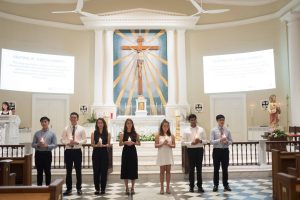
If we feel that He is calling us to serve in a particular area, we then need to turn our disposition from an obligation into a desire. A desire to use these gifts in service to our community, knowing that that the work that we do contributes in an irreplaceable manner–nobody else can perform the service that you do in the same way that you can.
Building His Kingdom
As we are all given different gifts and talents, we are all also called to use them in some way to build His Kingdom. If you find yourself looking for ways in which to do this, don’t hesitate to locate or contact someone from your campus or parish community. It is also important to note here that if a particular charism seems something entirely out of your nature to do, that doesn’t mean that God may not be calling you to grow in that area! Continue to go about your day being open to the Spirit and let Him inspire you!


